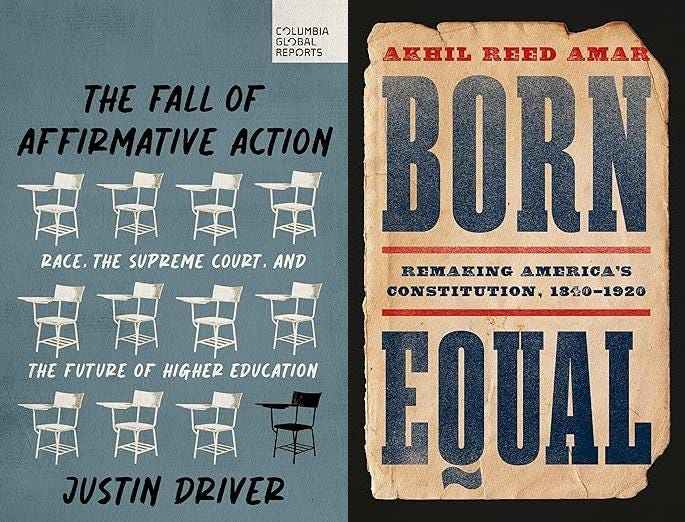Things to Read This Week (9/22)
Ryan Williams on Coney Island, and more
Shanah Tovah.
Void Judgments and Reasonable Times, from Ryan Williams, and with much relevance to Coney Island v. Burton, granted for OT 2025. As I read the paper, it confirms my intuition (and the Sixth Circuit’s holding under review) that motions to vacate a void judgment must be made within a reasonable time, but contains important implications for what amounts of time are “reasonable” — including perhaps any time for a judgment which is void on its face.
Looming Mootness Questions in the Appropriations Litigation, by Zach Price. Another important post from the best scholar writing on the appropriations litigation right now.
Fighting Words at the Founding. Interesting HLR student notes argues that “At the Founding, speakers of fighting words were indictable only if they intended to cause violence. Yet today, Americans who speak fighting words without any intention of causing a fight routinely face criminal sanctions.”
Kelsey Piper reviews Yudkowsky & Soares, “If Anyone Builds It, Everyone Dies.” Only for paid subscribers of the Argument, I think, but Piper’s writing is more than enough reason to subscribe.
Justin Driver has a new book: The Fall of Affirmative Action: Race, the Supreme Court, and the Future of Higher Education (“Far from a mere eulogy, The Fall of Affirmative Action provides a blueprint for the future—a rallying cry for citizens to forge new paths to inclusion and push back against the notion that racial equity is doomed. The death of affirmative action, Driver insists, need not mean the death of opportunity.”)
So does Akhil Amar: Born Equal: Remaking American Constitutional Law 1840-1920. (“The promise of birth equality sat at the base of the 1776 Declaration of Independence. But in the nineteenth century, remarkable American women and men—especially Elizabeth Cady Stanton, Frederick Douglass, Harriet Beecher Stowe, and Abraham Lincoln—elaborated a new vision of what this ideal demanded. Their debates played out from Seneca Falls to the halls of Congress, from Bleeding Kansas to Gettysburg, from Ford’s Theater to the White House gates, ultimately transforming the nation and the world.”
)




Good news: you don't need to be a paid subscriber to The Argument to read Kelsey Piper's review of If Anyone Builds It, Everyone Dies. Bad news: she thinks there's a good chance the authors are right. And that doesn't even seem to turn on potential bad intentions by the builders.